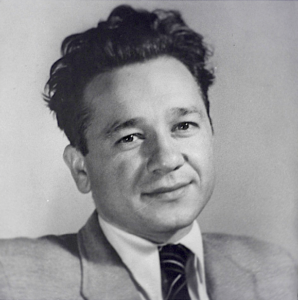Tadeusz Borowski

Tadeusz Borowski, born on 12 December 1922 in Zhytomyr (Ukrainian Soviet Republic) to Polish parents. Borowski was one of those young, exceptionally talented authors who survived the Second World War, including two years as a prisoner in the concentration camps in Auschwitz, Dautmergen and Dachau, but not the first few years after liberation from the German camp. Five days after the birth of his daughter Małgorzata, Borowski attempted suicide on 1 July 1951 and died on 3 July 1951 at the age of 28.
Among the literary works, reports and testimonies of all those who survived the German concentration camps, Tadeusz Borowski’s work occupies a special position. His stories and poems, Borowski’s testimony to Auschwitz, are truly unique: “Tadeusz Borowski is one of the little-known and yet most important authors in the world who have given Auschwitz an almost metaphysical dimension. His work (…) helps us to at least begin to understand the unbelievable and monstrous nature of the life and death of homo Auschwitziensis.” (Arno Lustiger, Die Welt)
The laconic clarity of his language and the disturbing rigour of his content make Tadeusz Borowski one of the most important representatives of Holocaust literature.
In his 2002 Nobel Lecture in Stockholm, Imre Kertész described Borowski’s prose as a key to his understanding of dehumanisation in the first half of the twentieth century.